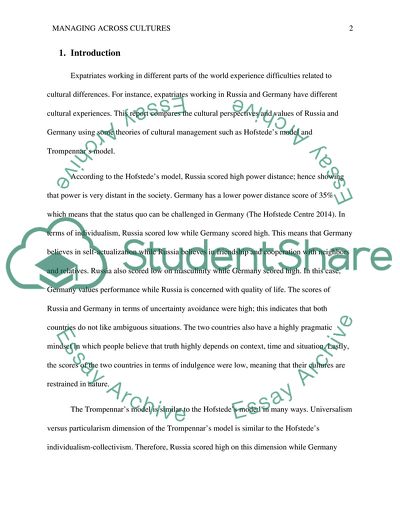Cite this document
(“The Cultural Perspectives and Values of Russia and Germany Assignment”, n.d.)
The Cultural Perspectives and Values of Russia and Germany Assignment. Retrieved from https://studentshare.org/culture/1668431-managing-across-cultures-final-report
The Cultural Perspectives and Values of Russia and Germany Assignment. Retrieved from https://studentshare.org/culture/1668431-managing-across-cultures-final-report
(The Cultural Perspectives and Values of Russia and Germany Assignment)
The Cultural Perspectives and Values of Russia and Germany Assignment. https://studentshare.org/culture/1668431-managing-across-cultures-final-report.
The Cultural Perspectives and Values of Russia and Germany Assignment. https://studentshare.org/culture/1668431-managing-across-cultures-final-report.
“The Cultural Perspectives and Values of Russia and Germany Assignment”, n.d. https://studentshare.org/culture/1668431-managing-across-cultures-final-report.


